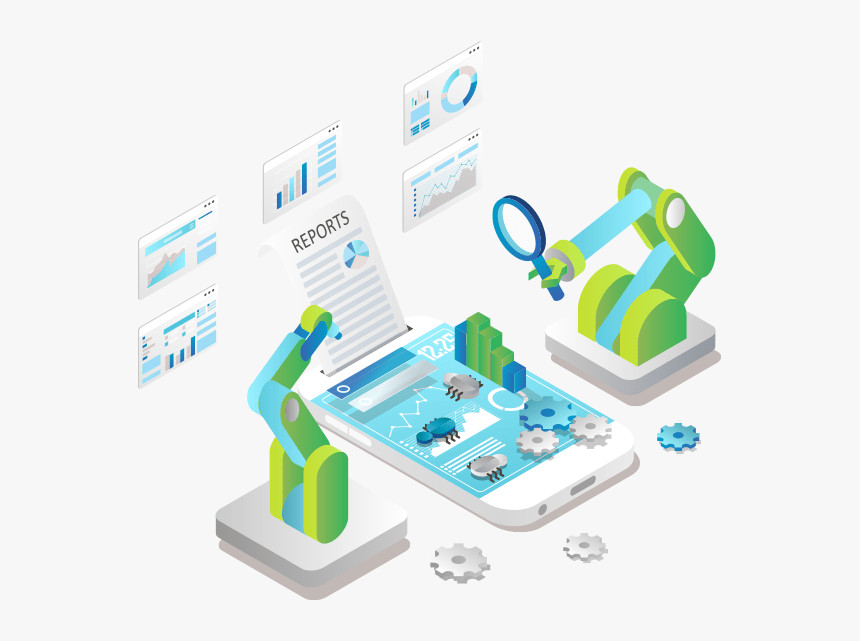In the fast-paced world of software development, ensuring quality is more critical than ever. As software becomes increasingly complex, testers need robust tools to automate, manage, and optimize the testing process. If you’re a budding tester or looking to advance your career, understanding and mastering the top software testing tools is crucial. Whether you’re pursuing a software testing course in Toronto or enhancing your skills through QA training in Toronto, this list of tools will give you a strong foundation for 2024 and beyond.
Table of Contents
Toggle1. Selenium – The Industry Standard for Automation
Selenium remains one of the most widely used automation testing tools. It’s an open-source framework that allows testers to write scripts in multiple programming languages like Java, Python, and C#. Selenium is particularly useful for testing web applications across different browsers.
Why you should learn Selenium in 2024:
- Cross-Browser Testing: Easily test on Firefox, Chrome, Safari, etc.
- Multi-Language Support: Testers can work in various programming languages.
- Large Community: With a massive support network, Selenium is easy to learn and troubleshoot.
Learning Selenium is a must for those taking a QA training in Toronto or any other region, as it opens doors to many automation testing roles.
2. JIRA – Powerful Test Management
While JIRA is primarily known for project management, it has evolved into a critical tool for tracking bugs and managing test cycles. With integrations like Xray and Zephyr, JIRA becomes a powerful test management tool, providing an all-in-one solution for testers.
Why you should know JIRA:
- Bug Tracking: Keep track of issues efficiently.
- Agile Integration: Perfect for teams working in an Agile environment.
- Real-Time Reporting: Gain insights into test coverage and defect trends.
Most software testing courses in Toronto include JIRA training due to its widespread use in the software development lifecycle.
3. Postman – API Testing Simplified
As the importance of APIs in modern software continues to grow, Postman has become an essential tool for API testing. Postman provides an intuitive interface for building and testing APIs, allowing testers to automate requests and validate API functionality.
Key features:
- Easy API Development: Build and test RESTful APIs.
- Automation: Create automated test suites.
- Collaboration: Share collections with your team effortlessly.
Whether you’re attending a QA training in Toronto or learning on your own, mastering Postman is critical for anyone involved in API testing.
4. Katalon Studio – All-in-One Test Automation
Katalon Studio is a comprehensive automation testing tool that supports web, mobile, and API testing. It’s user-friendly and doesn’t require advanced coding skills, making it an excellent tool for beginners and experienced testers alike.
What makes Katalon stand out:
- Ease of Use: Suitable for testers with little to no programming knowledge.
- Cross-Platform Testing: Test web, mobile, and API in a single tool.
- Integrated with CI/CD: Seamlessly integrates with Jenkins and other CI/CD tools.
Including Katalon in your toolkit after completing a software testing course in Toronto could be the game-changer for your career.
5. Appium – Mobile App Automation
As mobile app usage continues to soar, so does the demand for mobile app testing. Appium is an open-source mobile testing framework that allows testers to automate mobile applications on iOS and Android.
Why Appium is important in 2024:
- Cross-Platform Testing: Automate mobile apps on both Android and iOS.
- Multiple Languages: Write tests in Java, Python, and more.
- Open Source: Free and widely supported by the community.
Mobile testing is increasingly a focus area in QA training in Toronto, and Appium is the go-to tool for anyone serious about mobile automation.
6. TestComplete – GUI Test Automation Made Simple
TestComplete is a commercial tool that allows for functional and regression testing of desktop, web, and mobile applications. It supports a wide range of scripting languages and integrates with popular CI/CD tools.
Key benefits:
- Ease of Use: User-friendly interface that doesn’t require extensive programming.
- Cross-Platform Testing: Support for desktop, web, and mobile testing.
- Flexible Scripting: Use scripts or keyword-driven testing based on your preferences.
Many advanced software testing courses in Toronto now include TestComplete as part of their curriculum due to its increasing industry relevance.
7. LoadRunner – Performance Testing at Its Best
When it comes to performance testing, LoadRunner is one of the most trusted tools in the market. It allows testers to simulate real-world load conditions and helps identify bottlenecks before software deployment.
Why LoadRunner stands out:
- Load Simulation: Test applications under varying load conditions.
- Comprehensive Reporting: Detailed insights into system performance.
- Wide Protocol Support: Test web, mobile, and enterprise applications.
Load testing is an integral part of any QA training in Toronto or software testing course in Toronto, and mastering LoadRunner can significantly boost your employability.
8. SoapUI – Simplified Web Service Testing
SoapUI is an open-source tool designed specifically for testing web services and APIs. It supports both SOAP and REST APIs and offers automated testing, load testing, and security testing capabilities.
Why SoapUI is essential:
- API Testing: Comprehensive features for SOAP and REST testing.
- Automation & Load Testing: Build test suites for functional, regression, and load testing.
- Easy to Use: Simple interface for quick API testing.
As more companies shift towards API-driven architectures, knowledge of SoapUI, especially through a software testing course in Toronto, is becoming increasingly valuable.
9. Cucumber – Behavior-Driven Development Made Easy
Cucumber is a tool for behavior-driven development (BDD), allowing teams to write human-readable tests that can then be executed as automated scripts. This bridges the gap between business and technical teams, ensuring better collaboration.
Why Cucumber is popular:
- Readable Tests: Write tests in plain English using Gherkin syntax.
- BDD Support: Encourage collaboration between developers, testers, and business stakeholders.
- Language Flexibility: Compatible with Java, Ruby, and other languages.
BDD tools like Cucumber are becoming integral to QA roles, and many QA training in Toronto programs now offer courses on how to use this powerful tool.
10. Jenkins – Continuous Integration and Continuous Delivery (CI/CD)
Automation in testing is incomplete without integration with CI/CD pipelines. Jenkins is the most widely used tool for CI/CD, allowing testers to integrate their test automation with the software development lifecycle seamlessly.
Why Jenkins is a must-know tool:
- Continuous Testing: Automate the execution of your test scripts.
- Integrates with Other Tools: Works well with Selenium, Appium, and many others.
- Open Source: Supported by a large community.
Many software testing courses in Toronto emphasize learning Jenkins, as continuous testing is critical in modern development environments.
Conclusion
Whether you’re just starting out in a software testing course in Toronto or looking to advance your skills through QA training in Toronto, mastering these top 10 tools will position you for success in 2024. These tools not only cover various aspects of testing—from automation and performance testing to API and mobile testing—but also align with industry trends, ensuring you stay ahead of the curve in your career.







